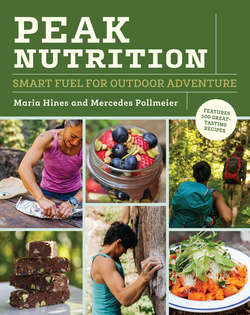Читать книгу Peak Nutrition - Maria Hines - Страница 21
На сайте Литреса книга снята с продажи.
Anchor Five: Eat Local and Organic.
ОглавлениеThis anchor doesn’t directly affect your eating habits, however, it will affect your shopping habits and overall worldview on how foods are farmed and prepared. Becoming more aware of what’s in your food and where it comes from will naturally affect what you put in your body. If you shop at your local farmers market or co-op, you are not only supporting local economies, but you are also buying seasonal foods, which can help your allergies and the environment. If you can go organic, you are eating foods that have a higher nutrient value and, because of the way they are grown, will support environmental sustainability. We go deeper into this in chapter 13, Sourcing Your Food and Planning for Outings, where we talk about food labels, gratitude, and the benefits of eating certified organic food.
If you decide you want to try buying local, organic foods, start with staple foods that are easy to find cheaper options for. Check the bulk foods section for cereals, beans, honey, peanut butter, nuts, etc. Buying organic doesn’t have to break the bank, but it will take some careful shopping.
TYPES OF FATS
All fat isn’t created equal, but what’s the difference?
•Saturated fats. Animal fats such as eggs, dairy, meat, butter, and cheese; coconut oil; and palm oil.
•Monounsaturated fats. Macadamias, pecans, almonds, cashews, pistachios, tahini, pumpkin seeds, olives, olive oil, and avocado.
•Polyunsaturated fats. Fish oil, hemp seeds, algae oils, peanuts, canola oil, walnuts, chia seeds, and Brazil nuts.
